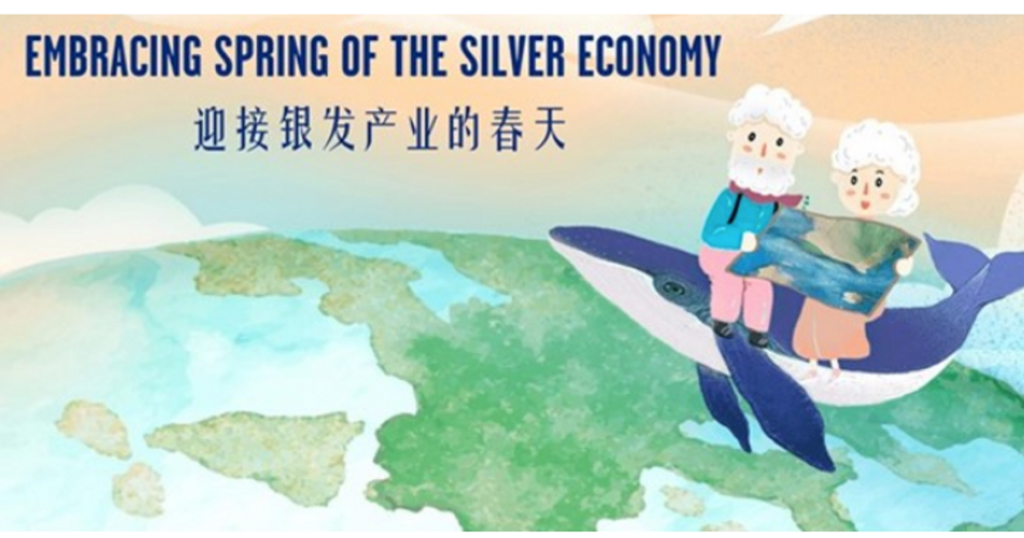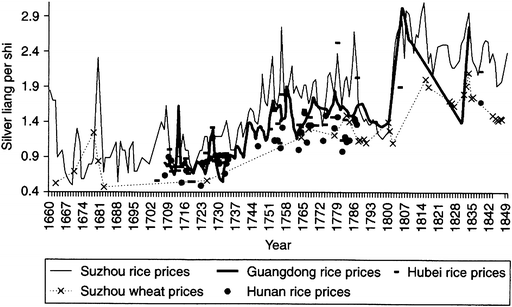Chinas Silver Economy Thrives as Birthrate Drops. The world’s second-largest economy, China, is undergoing significant demographic changes that are reshaping its economic landscape. As the country’s birthrate continues to decline, businesses and industries that once focused on children and young families are now turning their attention to a more abundant and rapidly growing market: the elderly.
This shift in focus has given rise to what is being called “China’s silver economy,” where services, products, and industries tailored to senior citizens are thriving as the population ages.
A Declining Birthrate and Its Economic Impact

For decades, China’s strict one-child policy contributed to a rapidly aging population and a shrinking labor force. Even after the policy was relaxed in 2016, and later scrapped altogether, the birthrate has continued to fall. In 2022, China’s population shrank for the first time in over 60 years, with deaths outnumbering births.
The country recorded just nine million births in 2023, marking a 6% decline from the previous year. This demographic shift has put immense pressure on businesses that catered to children, as the number of preschool-aged children in China plummeted by nearly 12%.
The economic and social disruptions caused by the COVID-19 pandemic further accelerated these trends. Businesses that relied on a steady stream of young families, such as kindergartens, preschools, and maternity stores, were hit hard by falling enrollments and reduced foot traffic. Many had to close or pivot to new markets to survive.
Read : Kanye West First Unexpected Concert in China after 16 Years
The Rise of Chinas Silver Economy
In response to this demographic reality, many businesses in China have shifted their focus from children to seniors. The “silver economy” refers to the economic activities and industries that cater to the needs and preferences of elderly consumers.
With over 290 million people aged 60 and above in China, and the number expected to exceed 400 million by 2035, this market presents a massive opportunity for businesses.
One notable example is Li Dongmei, a former kindergarten operator who pivoted her business to focus on seniors after the pandemic made it clear that the children’s market was shrinking. Li now runs an education center in Jinan, where she offers singing, dancing, music, and art classes for elderly students.
Unlike schoolchildren who have holidays, seniors attend classes year-round, and the demand has been strong. Li’s classes are consistently full, and she has found that older people are eager to engage in new activities and learning opportunities.

“The biggest economy is the silver economy,” said Li, emphasizing the potential of this growing market.
Shifting Business Models: From Formula for Infants to Seniors
The shift toward the silver economy can be seen across various industries. Dairy companies that once focused on producing infant formula are now developing specialized milk powders for seniors.
For example, Xinjiang Tianrun Dairy, a state-owned company, acquired a smaller rival to expand its product line to cater to middle-aged and elderly consumers. These products are marketed as offering health benefits such as preventing muscle atrophy, improving sleep, and aiding digestion.
Global corporations like Nestlé have also adjusted their strategies in response to the declining birthrate. The Swiss food giant announced the closure of its infant formula factory in Ireland, citing China’s declining birthrate as a key factor. At the same time, Nestlé and other companies have introduced dairy products specifically designed for seniors.
Chinese dairy company Yili Group has aggressively promoted its products for the elderly through television commercials. In one ad, a young couple buys specialized powdered milk for their elderly relatives during Chinese New Year, highlighting the cultural shift in consumer behavior.
Technology for the Elderly: New Devices for a Growing Market

Another industry capitalizing on China’s silver economy is the technology sector. 360 Security Technology, a Chinese cybersecurity firm, originally developed smartwatches for children, allowing parents to monitor their whereabouts and internet usage.
Recognizing the growing elderly population, the company has since expanded its product line to include smartwatches for seniors. These devices come equipped with features such as heart rate and blood pressure monitors, location tracking, and emergency calling, all aimed at ensuring the safety and well-being of elderly users.
The shift toward targeting seniors is not just a business decision; it’s a necessity. According to He-Ling Shi, an associate professor of economics at Monash University in Melbourne, businesses that once catered to children have little choice but to pivot to the growing elderly market. “They have no choice,” he said, noting the rapid decline in the number of children in China.
Employment Opportunities in Elderly Care
The aging population is also creating new job opportunities in elderly care. Many former kindergarten teachers are finding employment in senior care facilities, where the responsibilities are surprisingly similar.
For example, Zhang Youlan, a former kindergarten teacher, now leads singing and dancing classes at a nursing home. She also sends pictures of her elderly students to their grown children, much like she used to do with her young pupils.
Zhang’s experience reflects a broader trend in China, where over 20,000 kindergartens closed between 2022 and 2023, while the number of elderly care facilities has doubled since 2018. “There are more and more elderly people and fewer and fewer children,” Zhang said, explaining why she believes the senior care sector offers a more promising future than her previous work in early childhood education.

New Business Models Emerge
Entrepreneurs who once catered to young families are also adapting to the changing market. Cai Hao, who opened a maternity and baby goods store in 2018, initially focused on clothing and accessories for infants and toddlers. However, as the number of young families dwindled and the pandemic reduced in-store traffic, Cai noticed a new demand emerging: older customers began asking for powdered milk for seniors.
Seeing an opportunity, Cai expanded his product offerings to include a variety of dairy products tailored to elderly consumers, including milk for diabetics and those with hypertension. While this shift wasn’t part of a long-term strategy, it has proven successful, with about 10% of his sales now coming from products for seniors. “Who wouldn’t be willing to sell more if they could?” Cai said.
Government Policies Supporting the Silver Economy
Recognizing the economic potential of its aging population, the Chinese government has taken steps to promote industries and services that cater to seniors. In a 2021 directive, the State Council, China’s cabinet, called for “actively fostering the silver economy” and developing “elderly-friendly industries.” This policy aims to encourage innovation and investment in sectors such as healthcare, technology, and leisure activities for seniors.
In September 2023, China approved a plan to raise the country’s retirement age for the first time since the 1950s. This move is part of a broader effort to address the demographic challenges posed by an aging society and to extend the working lives of older adults.
Conclusion:The Future of China’s Silver Economy
As China’s population continues to age, the silver economy is set to become an increasingly important driver of the country’s economic growth.
With a rapidly expanding elderly population and a shrinking number of children, businesses across various sectors are pivoting to meet the needs of seniors. From education and healthcare to technology and consumer goods, the silver economy is creating new opportunities for innovation and growth.
China’s aging population presents significant challenges, but it also offers a wealth of opportunities for businesses and policymakers alike. As the country navigates this demographic shift, the silver economy will play a crucial role in shaping China’s economic future.

